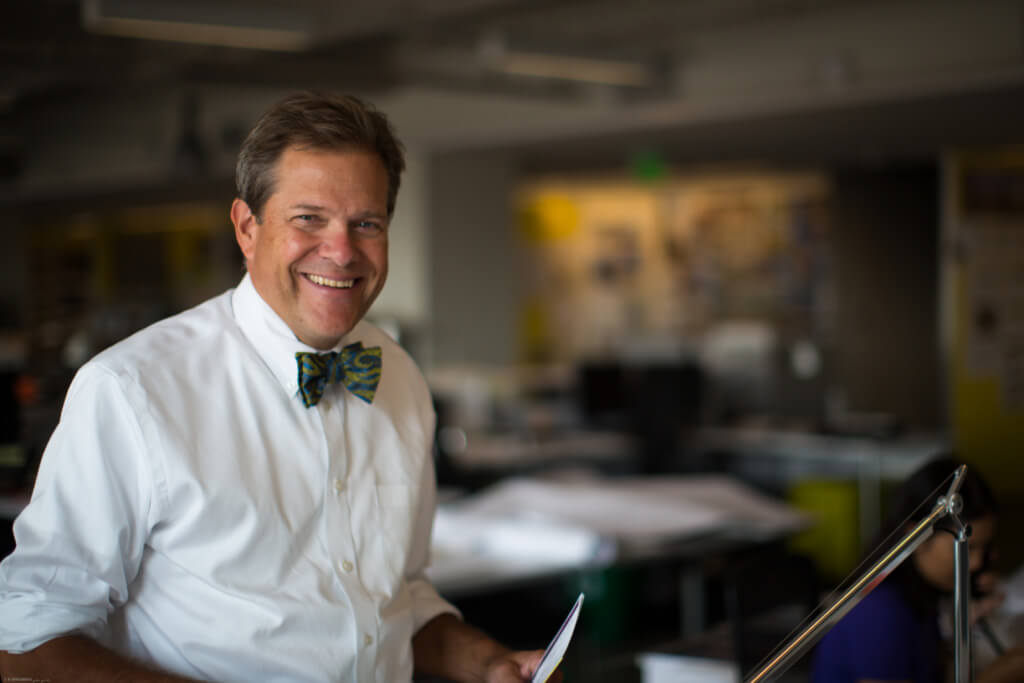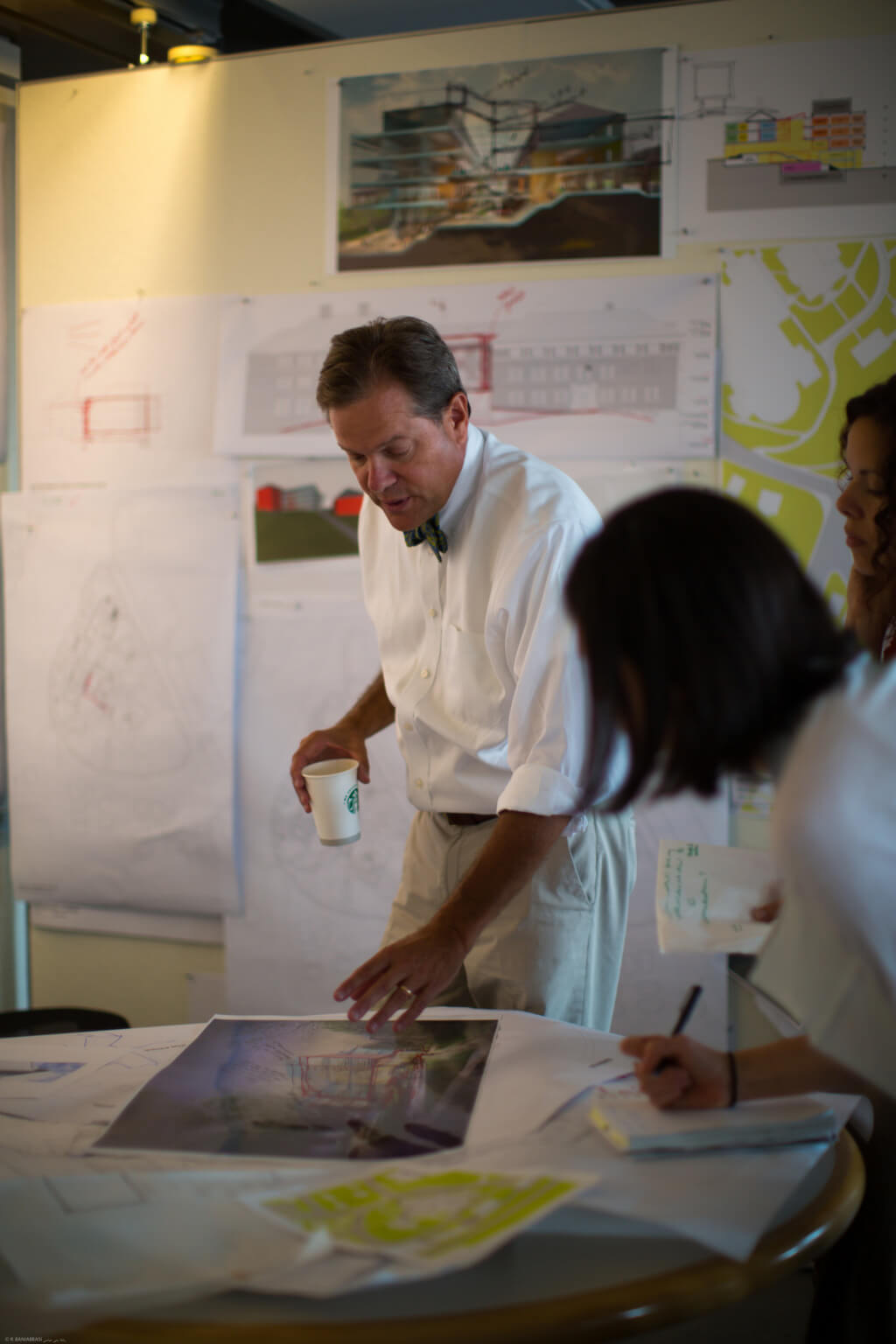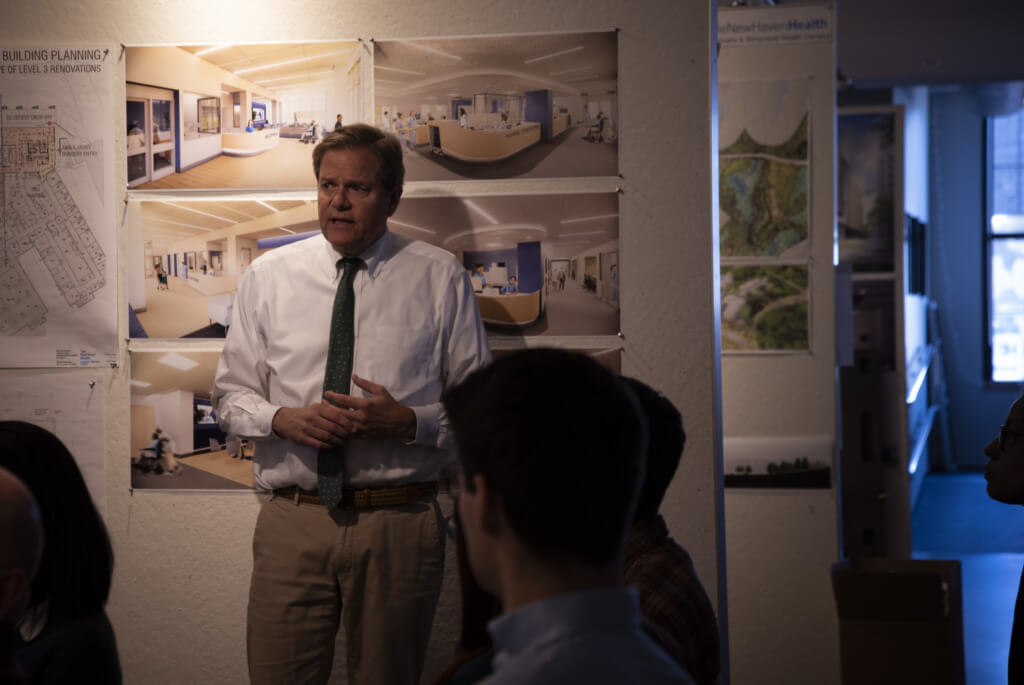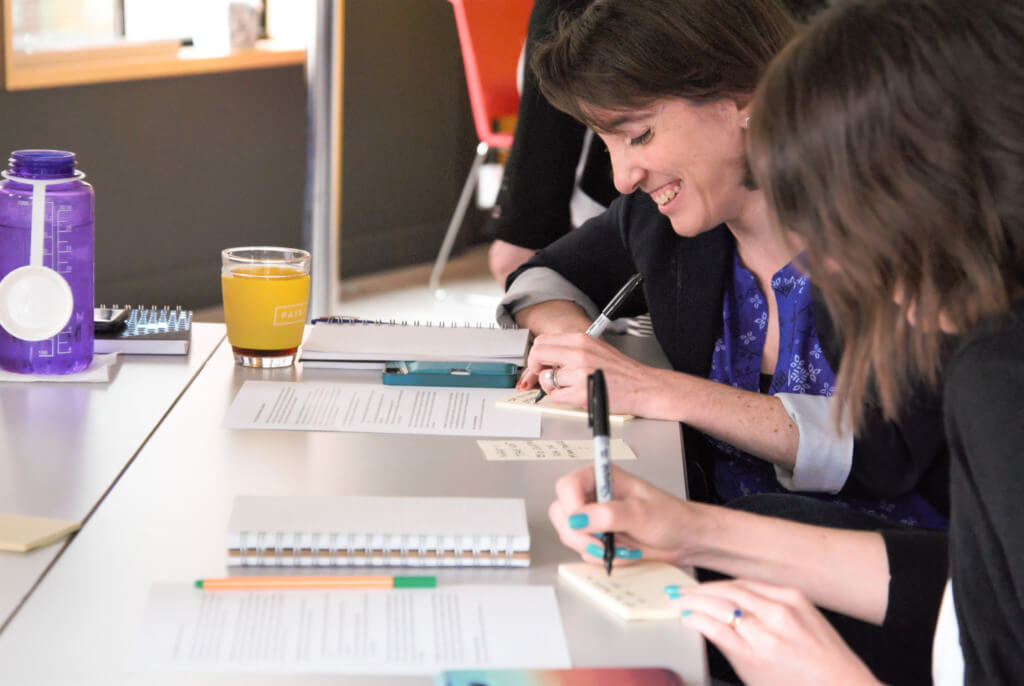Mentorship is about building relationships to help guide an individual through the larger arc of their professional and career development. One important component of mentorship is sponsorship: guidance and advocacy for an individual in career development within a specific firm. A good sponsorship relationship requires self-advocacy by the individual looking to grow in their career as well as leadership from the partner in a role to be a sponsor and advocate.
I have had the pleasure of working with George Marsh, FAIA since 2016 and am honored to call him both a mentor and a sponsor. As part of the PAYETTE Connect initiative, we recently had a virtual sit-down to bring more transparency to the sponsorship process and share some insights as to how individuals can become better self-advocates in their own careers.
The following interview has been edited for length and clarity.

Alison Laas, AIA: What characteristics do you look for in individuals who are in positions to sponsor?
George Marsh, FAIA: I look at the ability of the person to demonstrate leadership in what they are doing. Where they find opportunities as part of a large project team to investigate and design above and beyond what they are asked. For example, an individual who might be looking at brick studies for a building presents options that open the eyes of the leaders on their team to new ways of looking at the design problem. Doing work that demonstrates that the person took a task and made it something beyond what we asked them to do.

AL: You look for individuals who engage in whatever task they are given on a team and demonstrate initiative and entrepreneurship.
GM: I also look for people who are open to engaging with their team on all aspects of the project. COVID has been difficult for many people in many ways, particularly for younger staff, who have lost the opportunity to overhear important conversations that a partner might have with a client and would naturally continue with the team when we are in the office. Those synergistic conversations that start as overheard phone calls, are opportunities to learn how to address situations as they arise on a project or with a client.

AL: How much do you rely on other members of your team to bring someone to your attention who might be a good candidate for further mentorship, or specifically for sponsorship in the promotions process? Does the decision to bring someone forward for sponsorship come from your own interactions only or do you rely on others on your team as well?
GM: It’s specific to the size of the project. On smaller projects where an individual works directly with me, it is easy to make an assessment of their strengths and weaknesses. You learn when you can ask someone to do something expediently and well, and when an assignment that is more difficult and you can give them more latitude to do something that challenges them.
On a bigger job, it depends on how plugged in you are. I am at a point in my career where I am really plugged into some projects, while I am stepping back on others to give people who have developed relationships with clients or recently become partners to take on leadership roles. On those projects I don’t necessarily understand everything that is going on and I rely on the project manager and project architect to bring both issues and opportunities for individuals to my attention.
It also helps to understand how a team works together. You can get a sense of when a team really clicks or if they are struggling on a project. For those where there may be some struggles, it is really important to step in early and serve as a mentor to avoid issues in the design as well.

AL: At critical points in my career path, I have had to find ways to make sure firm leaders are aware of all the things that I am doing, both on my project work and on professional development activities outside the office.
You typically sponsor individuals with whom you work directly, but when it comes promotions, does it make the conversations with the whole firm leadership easier when someone has done some self-advocacy? What advice or opportunities do you see for self-advocacy?
GM: Really good question and really important. If someone works just for me, and doesn’t reach out to other constituencies in the office, there is more pressure on me as an individual principal to advocate for them in the promotions conversation. This is particularly true in the remote environment. There are lots of ways to gain exposure to a larger constituency of leaders at PAYETTE: MLK Day of Service, the Social Justice Forum, All Staff presentations, engaging with the FabLab or Space Strategies group.
Often in promotion discussions a partner can’t advocate for everyone – if you do, you water down your sponsorship. Ideally a principal doesn’t want to be put in a position to have to choose to advocate for one person over another.
You have to fly your own flag elegantly, being humble and without throwing other people under the bus. If you can do that, the leaders of the firm will recognize that. It is a really hard thing to do. One of the best ways to gain more exposure in the firm is to work on a bigger team with more partners, especially if you have only worked on small projects or with one partner. I don’t get offended and it doesn’t offend partners to make changes to other teams and projects so you can work with others.
I want to make it clear that the promotions process is taken very seriously, and discussions take a long time among the partnership. There are very healthy discussions about individuals around promotions and the more exposure you have to a greater number of partners, the easier those discussions are.

AL: Are there different expectations that you place on someone who you have sponsored? Or is sponsorship around promotions just part of continued growth at PAYETTE?
GM: It is just part of the process – part of continued growth. Sometimes when we do a promotion, we do ask people to demonstrate more leadership, but it doesn’t have to happen overnight. Leadership growth can happen over time. When someone is promoted to Associate for example, I watch how that person runs a project or project team, or how they handle consultants, contractors, or clients. If that person does well, it downloads me from those project tasks and I don’t have to worry quite as much. Of course I still check in, but I can focus my energy on other aspects of the project. This type of project leadership is also a trait that I look for in someone who I feel is getting ready for promotion.


